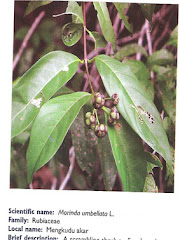Can the Rainforests Be Saved?
Harvesting sustainable resources in the rainforest may well be the only real solution in saving it from complete destruction. While there has been a national growing awareness and public outcry against rainforest destruction, the destruction of our Earth's remaining rainforests has actually increased since 1992 and programs geared to raising consciousness about the problems has made little impact. Timber harvesting and subsistence cropping by poor settlers and squatters are the leading causes of rainforest destruction. Unbelievably, large multi-national timber companies pay only $.60 to $3.00 per acre for the right to log timber on rainforest land and leave behind a wake of destruction which virtually destroys the many other sustainable resources and products the rainforest provides. It is a sad and simple fact that the rainforests are being destroyed for the profits they yield . Yet how can we in rich developed nations tell poor developing tropical countries that they cannot exploit their resources to service their debts and feed their people when our own economies have been built on the extensive exploitation of our own natural resources?
The Solution to Rainforest Destruction
The key to turning this tide of destruction lies in providing long-term, economically viable alternatives to the current destructive exploitation of the rainforests. Sustainable, non-destructive harvesting of the riches contained in the rainforests of the world is vital to the on-going health of our world and is truly the answer. Not only is it environmentally sound, but sustainable harvesting of rainforest plants makes more economic sense than the alternatives. It is estimated that sustainable harvesting of one acre of Peruvian Amazon rainforest can produce over $2400 annually. In contrast, clear-cutting for timber nets only $400 per acre and cattle grazing earns only $60 per acre. The only solution is to offer these countries real and viable alternative methods and markets of exploiting their resources in sustainable programs which will enable them to protect their resources for future generations and for long-term profits and gains. This isn't as hard as it sounds. The rainforest actually produces a wealth of renewable and sustainable resources - not just timber. These include important medicinal plants used for centuries by rainforest inhabitants, nuts, fruits, oils, fibers, and other resources like chocolate, rubber and chicle.
Raintree - A Leader in Implementing the Solution
Since it's inception in 1995, Raintree has been the leader in creating a world market for the important medicinal plants of the Amazon Rainforest. Today, millions of acres of government owned, privately held, NGO controlled, and Indian demarcated lands in the Amazon are demonstrating through Raintree's harvesting programs, that wild-harvesting medicinal plants on rainforest land provides greater income and profits to the land owner and country than any other unsustainable land usage. Raintree's harvesting programs competes successfully and directly with other interests in the rainforest like timber logging and results in higher profits for the land while still preserving its biodiversity instead of destroying it. This IS the economic incentive and encouragement necessary to protect the rainforest for future generations and it IS working to protect rainforest lands today.
--------------------------------------------------------------------------------
Raintree Nutrition, Inc.
Raintree Nutrition, Inc., is involved in researching, developing, importing and marketing non-timber rainforest products with special emphasis on the important medicinal plants of the Amazon Rainforest.
Research and Documentation
To develop these new rainforest botanical products, Raintree researches, documents and tests new and exciting medicinal plants for their effectiveness and safety. Research begins by working with indigenous tribal healers and shamans as well as rainforest community herbal healers called curanderos and other natural health practitioners, herbalists and researchers in South American cities, to target potential plants which have important medicinal values and benefits. Worldwide document gathering and literature searches compile and compare what other ethnobotanists, botanists, and researchers have discovered and tested about the properties, uses, and effectiveness of the plants. Phytochemical research and testing is funded and performed when necessary to substantiate the safety and effectiveness of the rainforest botanicals under development. Raintree's Tropical Plant database on the Internet's World Wide Web provides over 300 pages of Raintree's compiled research and documentation on these rainforest medicinal plants.
Indigenous Intellectual Property Rights
Raintree founder and Board Certified Naturopath, Leslie Taylor, spends extensive time with indigenous rainforest Indian tribes, shamans, local healers and rural herbal doctors throughout the Amazon learning and documenting their extensive medical plant knowledge. Her mission has been to publicize and publish this indigenous knowledge where it can be shared and used by all - even among the indigenous people themselves. More importantly, publishing this type of information legally puts this important knowledge into the public purview so that it cannot be patented or exploited by any single company. If the knowledge is already public knowledge - then it cannot be patented for the sole profits of a few. Ms. Taylor's published book, Herbal Secrets of the Rainforest, as well as the online Raintree Tropical Plant Database has been used at least 4 times in the past and will be used countless times in the future as reason to deny U.S. plant use patents from being filed on tropical rainforest plants. Raintree is also proud to be a collaboration partner with TEK*PAD (Traditional Ecological Knowledge Prior Art Database) - an index and search engine of existing Internet-based, public domain documentation concerning indigenous knowledge and plant species uses.
In this manner, not only is the knowledge freely shared and accessible to all, but profitable global markets are created for these highly effective natural medicinal plants. The indigenous people of the rainforest profit in the harvesting of these beneficial plants to meet this demand, and governments and local companies benefit from the jobs, income and profits derived from the processing, transportation and exportation of these rainforest plants around the world - freely without limitations. Lastly, the rest of the world benefits from the amazing healing properties and abilities of these powerful medicinal plants which can positively effect their health as well as positively affect the health and continuance of the rainforest itself. This truly represents a free and open global economic strategy that everyone can take part in and why it does make a difference in preserving our remaining rainforests of the world.
Sustainable Harvesting
Once the documentation process is completed, Raintree sets up sustainable harvesting in the rainforest. Contracting with land owners for wildharvesting rights, working with established extractive reserves which are trying to preserve critical sections of the rainforest, and working with government agencies to wildharvest government-owned rainforest lands to harvest the botanicals competes successfully and directly with other non-sustainable land usage and result in higher profits and yield for the land while protecting it from destruction. Careful attention is paid to the sustainable yield of the land so that the same botanical resources can be wildharvested year after year. The actual harvesting is performed by local rainforest communities and villages as well as Indigenous Tribal groups and communities. This keeps the profits where they need to be and where they have the most impact - in local economies. This again, gives these communities and populations an economic reason not to destroy the rainforest for subsistence crops since they can typically earn 8 to 10 times more money wildharvesting the forest around them than they can by chopping and burning it down for crops. Click here for more information about our plant harvesting programs and plant list.
See pictures of the Shipibo-Conibo Indian harvesting program
See pictures of the Jergon Sasha wild cultivation program
Botanical Processing and Manufacturing
Once harvested and imported into the country, Raintree utilizes the most technologically advanced extraction, processing and purification methods to offer the highest quality and the most effective botanical products available in the market. These include proprietary herbal extraction methods for medicinal plant extracts, water soluble oils and topical herbal extracts for body care products, and proprietary herbal extracts.
Sales and Services
Once these rainforest botanical products are fully developed, Raintree sells them as bulk ingredients to manufacturers in the natural products industry worldwide. As a leading supplier of bulk rainforest botanicals and extracts, Raintree currently offers over 60 high quality sustainably harvested rainforest botanicals from the Amazon Rainforest and the list is growing. As other marketing and herbal supplement companies add rainforest botanical products to their herbal supplement lines, additional consumer demand and education can be created for these sustainable rainforest botanicals, thus expanding harvesting areas and protecting and preserving more rainforest. In addition to being a bulk supplier, Raintree has developed two highly ethical product lines of rainforest supplements. The main Raintree Nutrition product line is sold in health food stores and other natural product retailers worldwide under the Raintree Nutrition brand label. The second product line is a group of 40 healing formulas sold only through practitioners of the healing arts and called Amazon Support.
أَلَمْ تَرَ أَنَّ اللَّهَ يُسَبِّحُ لَهُ مَنْ فِي السَّمَاوَاتِ وَالأرْضِ وَالطَّيْرُ صَافَّاتٍ كُلٌّ قَدْ عَلِمَ صَلاتَهُ وَتَسْبِيحَهُ وَاللَّهُ عَلِيمٌ بِمَا يَفْعَلُونَ Tidakkah kamu tahu bahwasanya Allah: kepada-Nya bertasbih apa yang di langit dan di bumi dan (juga) burung dengan mengembangkan sayapnya. Masing-masing telah mengetahui (cara) solat dan tasbihnya, dan Allah Amat Mengetahui apa yang mereka kerjakan. an-Nur:41
Tazkirah
Sami Yusuf_try not to cry
mu'allim Muhammad Rasulullah Sallallahu alaihi waSalam
ummi_mak_mother_ibu_Sami Yusuf
zikir Tok Guru Nik Abdul Aziz Nik Mat Mu'allimul Mursyidi
syeikh masyari afasi
ruang rindu
song
Arisu Rozah
Usia 40

Mudah mudahan diluaskan rezeki anugerah Allah
usia 40 tahun

UPM

Kuatan Pahe Darul Makmur
pemakaian serban semsa menunaikan solat_InsyaAllah ada sawaaban anugerah Allah
Rempuh halangan

Abah_menyokong kuat oengajian Ijazah UPM

usia 39 tahun

usia 23 tahun_UPM
An_Namiru

Ijazah Pengurusan Hutan UPM

General Lumber_Nik Mahmud Nik Hasan

Chengal

Tauliah

Semasa tugas dgn general lumber

PALAPES UPM

UPM

Rumah yang lawa

Muhammad_Abdullah CD
semasa bermukim di Kuatan Pahe Darul Makmur
Ijazah

air terjun

Borneo land

GREEN PEACE
GREEN PEACE
Kelang

Ahlul Bayti_ Sayid Alawi Al Maliki

Asadu_ Tenang serta Berani

atTiflatul Falasthiniin

Sayid Muhammad Ahlul Bayt keturunan Rasulullah

AnNamiru_SAFARI_Kembara

AnNamiru_resting

Hamas

sabaha anNamiru fil nahri

Namir sedang membersih

Tok Guru Mualimul_Mursyid

An_Namiru
.jpg)
Namir_istirehat
.jpg)
SaaRa AnNamiru fil_Midan
.jpg)
Renungan Sang Harimau_Sabaha AnNamiru
.jpg)
Syaraba AnNamiru Ma_A
.jpg)
AnNamiru_Riadhah
.jpg)
AnNamiru_Riadhah
.jpg)
AnNimru ma_A waladuha
Namir fil_Ghabi (sebut Robi...
Namir

AdDubbu_Beruang di hutan

Amu Syahidan Wa La Tuba lil_A'duwwi

AsSyahid

Namir

Tangkas
najwa dan irah

sungai

najwa

najwa

Kaabatul musyarrafah

unta

Jabal Rahmah

masjid nabawi

masjid quba

dr.eg

najwa dan hadhirah

along[macho]
![along[macho]](https://blogger.googleusercontent.com/img/b/R29vZ2xl/AVvXsEjuMi7D33CmR0_KXrCW2XigfLcUuQurcvtqOS139ncCwEzCyB-jUopk7QK7anADIenJEm2S0N6gAY1ubnACYXewgiAsI3rBjnLTawM39alLL-rEopOoVqn0w5WpLhPJH3hrXNtchEhgtyaI/s240/P7150023.JPG)
harissa dan hadhirah

adik beradik
Tongkat Ali

Tongkat Ali
herba kacip Fatimah
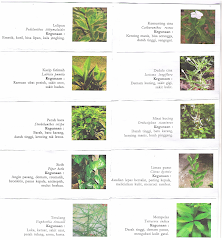
herba Kacip Fatimah
hempedu beruang
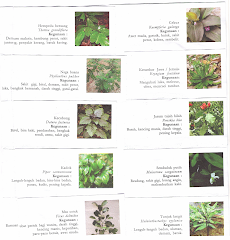
hempedu beruang
hempedu bumi

hempedu bumi
herba misai kucing

herba misai kucing
herba tongkat Ali
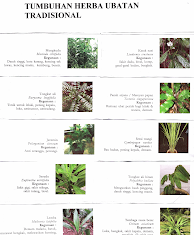.png)
Tongkat Ali
Ulama'

Ulama'
kapal terbang milik kerajaan negara ini yang dipakai pemimpin negara

kapal terbang
Adakah Insan ini Syahid

Syahid
Tok Ayah Haji Ismail

Saifuddin bersama Zakaria

Dinner....
Sukacita Kedatangan Tetamu
Pengikut
Kalimah Yang Baik

Ubi Jaga
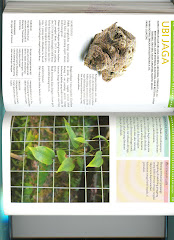
Ubi Jaga
Arkib Blog
Burung Lang Rajawali

Chinese Sparrowhawk
Kelicap Mayang Kelapa
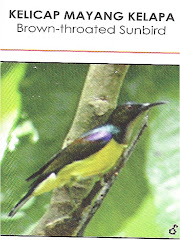
Brown-Throated Sunbird
Kopiah

Pokok Damar Minyak

Kacip Fatimah
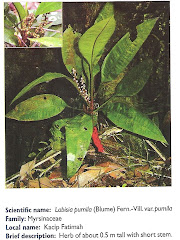
Mengkudu Akar
